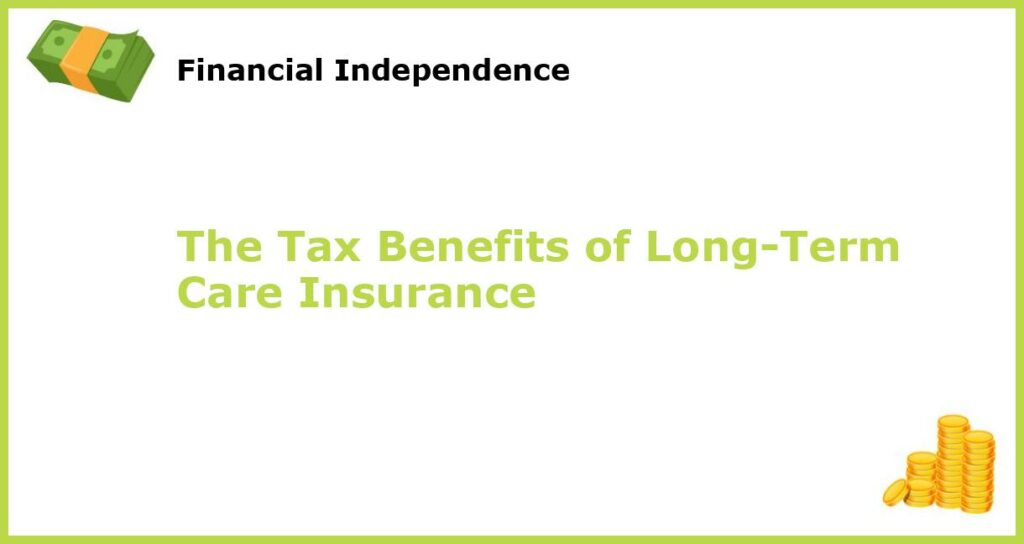Long-term care insurance is one of the options available to people that require assistance with their everyday activities due to a chronic illness, injury, or disability. Typically, it covers the cost of long-term care services that may not be covered by traditional health insurance plans or Medicare. Long-term care services can be provided in various settings, including nursing homes, assisted living facilities, adult day care, and at home.
1. What is Long-Term Care?

Long-term care refers to the extended period of assistance provided to individuals who require supervision and help with their daily activities due to a chronic illness, injury, disability, or other conditions. It can also refer to the services provided to people who may need medical care, nursing care, rehabilitation, and assistance with daily tasks.
The types of services that long-term care can provide vary depending on the particular circumstance. For example, in some cases, long-term care may involve basic assistance with the activities of daily living, such as bathing, dressing, toileting, eating, and transferring. In other cases, long-term care may involve medical intervention and rehabilitation after a stroke, injury, or surgical procedure.
Given the high associated costs of long-term care, long-term care insurance has become a popular option for individuals looking to secure their financial future.
2. What is Long-Term Care Insurance?

Long-term care insurance is a type of insurance policy that can help pay for the expenses associated with long-term care services. It can provide coverage for the cost of skilled nursing care, home healthcare, personal care, and other related services that may not be covered by traditional health insurance plans or Medicare.
Long-term care insurance policies differ depending on the coverage, premiums, and benefits that policyholders select. The coverage can range from traditional nursing homes and facilities to newer models like assisted living facilities and adult daycare services.
The benefits of long-term care insurance include financial security, independence, and peace of mind. With the payment of the insurance premiums, individuals can protect their savings and assets from being depleted by the high costs of long-term care. It also allows policyholders more choices in terms of the type and quality of long-term care services they receive, as well as where they receive them.
3. How Does Long-Term Care Insurance Benefit You?

Long-term care insurance can offer a variety of benefits. Many people may find it appealing because it can provide financial security by protecting their savings and assets from the high costs of long-term care. It can also help preserve the independence of policyholders, who may be comfortable receiving care in their homes, rather than in institutionalized settings.
Moreover, a long-term care insurance policy can offer policyholders flexibility so that they can choose the type of long-term care services they receive, as well as where they receive them. Long-term care insurance can also ensure that loved ones and family members are not burdened by the costs and demands of long-term care.
4. What are the Tax Benefits of Long-Term Care Insurance?

Long-term care insurance provides several tax benefits, including tax-deductible premiums and tax-free benefits, as long as they are used for qualified long-term care services.
The premiums paid for qualified long-term care insurance policies are usually tax-deductible, up to certain limits that vary based on the policyholder’s age. The limits for 2021 range from $450 for policyholders aged 41 to 50 to $5,640 for policyholders aged 71 or older.
Additionally, the benefits received from a long-term care insurance policy are usually tax-free, provided they are used to pay for qualified long-term care services.
5. How Much of the Premiums are Tax-Deductible?

The amount of long-term care insurance premiums that are tax-deductible may depend on several factors, such as the policyholder’s age and the total amount of medical expenses paid during the year. For example, in 2021, the maximum tax-deductible amount of long-term care insurance premiums ranges from $450 for policyholders aged 41 to 50 to $5,640 for policyholders aged 71 or older.
It is important to note that individuals should consult with their tax advisors or financial planners to learn more about the limits on tax deductions for long-term care insurance and how they apply to their specific circumstances.
6. How Can You Claim the Tax Deduction?
In order to claim the tax deduction for long-term care insurance premiums, policyholders have to itemize their deductions on Schedule A of their federal tax returns. They also need to fulfill specific criteria, such as the premiums being paid for a qualified long-term care insurance policy that meets specific standards, as determined by the IRS.
Policyholders need to keep accurate records and receipts of their long-term care expenses, including insurance premiums paid.
7. Are Long-Term Care Insurance Benefits Taxable?
No, the benefits received from a long-term care insurance policy are generally not taxable. However, if the total amount of benefits received exceeds the actual cost of long-term care services, the excess amount may be considered taxable income. Individuals should consult with their tax professionals to determine the tax implications of their long-term care insurance benefits.
8. Can You Deduct Long-Term Care Expenses?
Yes, individuals may deduct the expenses they incur in obtaining long-term care, including the premiums paid for long-term care insurance, medical and dental expenses that exceed 7.5% of their adjusted gross income (AGI), and certain home modifications and medical equipment used for long-term care. Keeping accurate records and receipts of all the long-term care expenses incurred is crucial in order to correctly prepare tax returns and obtain deductions.
9. How Can Financial Advisors Help with Long-Term Care Planning?
Financial advisors can play an important role in helping individuals and families plan for their long-term care needs. They can provide guidance on long-term care insurance options, as well as other strategies to finance long-term care, such as annuities, life insurance, and reverse mortgages.
Financial advisors can also help clients maneuver the complex regulations and tax implications related to long-term care insurance and expenses. They can provide education and insights about different policies and available benefits, costs, as well as taxation options to help clients make the best decisions for their specific situations.
10. In Conclusion
Long-term care insurance is an essential component of long-term care planning, and it can provide multiple advantages, including financial security, independence, and flexibility. Additionally, long-term care insurance policies provide tax benefits that policyholders should be aware of and take advantage of.
Understanding the tax rules applicable to long-term care insurance is essential in maximizing the benefits of the policy. It is also important to keep accurate records of all long-term care-related expenses and consult with tax professionals and financial planners regularly to ensure adequate financial security and well-being for the future.







